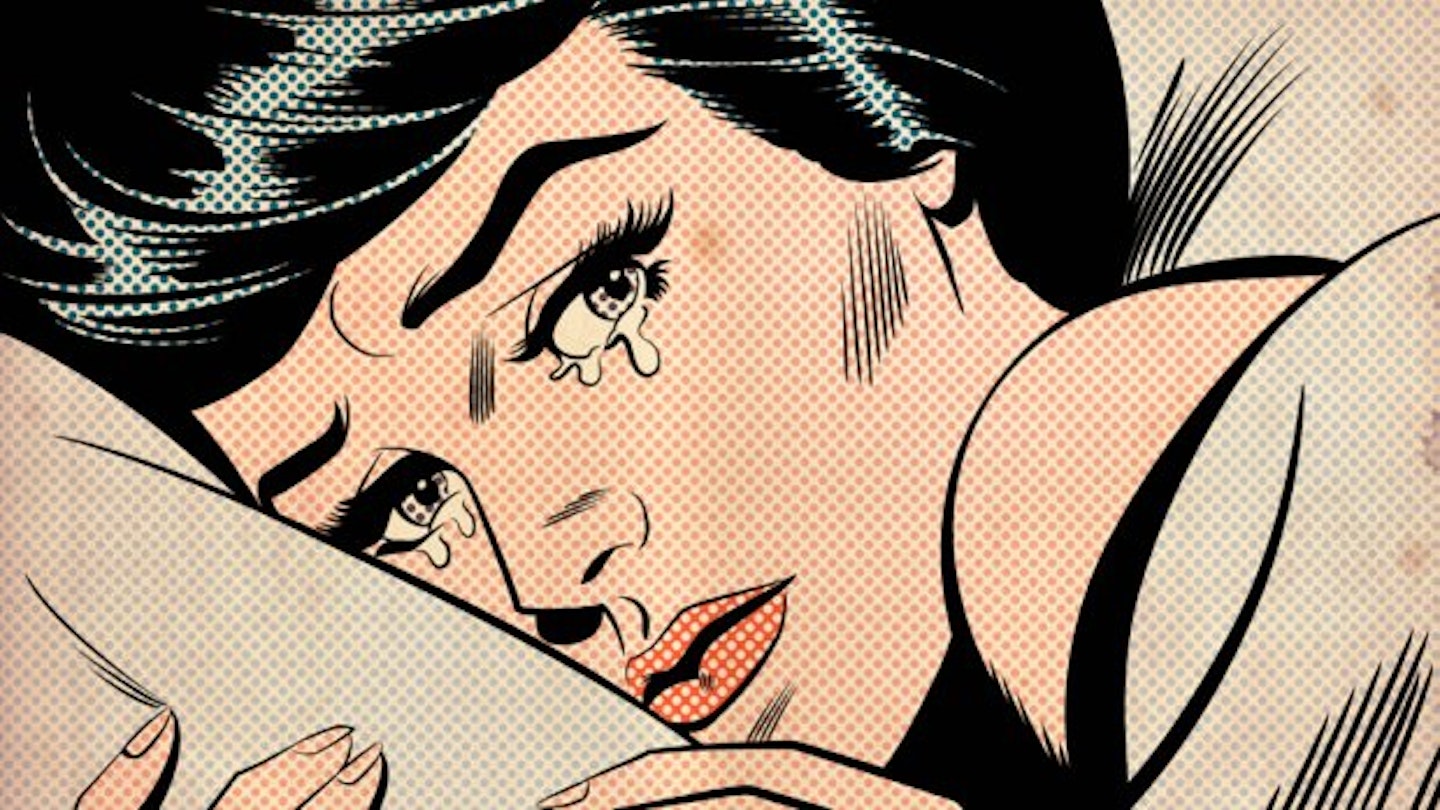Hands up if you’ve fallen guilty of saying ‘I NEVER ever cry.’ It was probably said while your eyes turned into small rivers, salty tears falling down your face as your mascara smudged over your face. ‘Who me? A cryer? NEVER.’
We all cry, it's part of being human, and you know what – I am all for it. I sometimes cry at baby animals looking cute, I occasionally cry when my favourite fictional characters finally get together on a TV show, I might cry when someone sends me a text that makes my heart sing or does the complete opposite and nearly gives me a panic attack. Call it over-reacting, call me over-emotional, call me whatever you want – I’ll probably cry about it.
But actually, I'm not any of those things, I’m just letting it all out. And you know what? It feels great. Holding it in just makes me feel worse, it makes me feel like I’m fighting with myself and not allowing my body to do what it needs to do. It makes me feel stressed, anxious and I know I’ll end up having a shit day after. So, what’s the point of trying to come across ‘strong?’ Go to a private space and let it all out. Dare you.

As adults, we’re often made to feel like crying is a negative thing. It makes you weak, or it’s something to be ashamed of and hidden. Had a crap day at work? You can’t cry, if you cry you’re a baby. You have to be strong, to work through it, but why? According to psychologists, crying is beneficial for our health, so why are we all so opposed to doing it?
Our bodies produce three different types of tears: reflex, continuous and emotional. All three have different healing properties. Continuous are produced on the regular to keep our eyes lubricated, reflex tears help to clear our eyes of noxious particles from smoke, pollution and exhaust. And emotional tears, according to ‘tear expert’ Dr William Frey (yes, that is a IRL job) contain stress hormones that get excreted from the body when we let it all out. So, when you do eventually cry, those tears act as a ‘natural pain killer’ and release endorphins that allow us to feel good. Those emotional tears allow our body to get back in balance after we experience stress.
In research carried out by M.C. Becht in Crying and Mood Change, he considers crying to be a ‘vital part of a healing or growing process, that should not be hindered.’ He goes on to say that ‘frequent (female) cries felt happier with the instruction to let their tears flow,’ these findings suggest that having a healthy relationship with our tears can enhance our mood, positively.
And, the add to the tear findings, according to a study in The Independent, crying not only makes nine out of 10 people feel better, it improves the mood of 88.8 per cent of weepers. They go on to explore the theory that crying also has body healing properties. Apparently, our emotional tears have higher levels of some proteins, manganese and potassium, and hormones – so when we cry, these chemicals that have built up during emotional stress are removed in our tears. Crying literally removes potenitally toxic proteins and nutrients that could be harmful for your body if build up.
The facts are all there. There is a link between allowing yourself to cry and positive mood change, so why go against it? Perhaps if we just allowed ourselves to go with it once in a while we’d feel better for it? Now, if you need me, I’m just reading an article about a baby otter that almost died, probably crying too.
‘The Fish Looked Really Lonely’ And Other Stuff We’ve Cried At During Our Periods
**Follow Alyss on Instagram @alyssbowen **
This article originally appeared on The Debrief.
